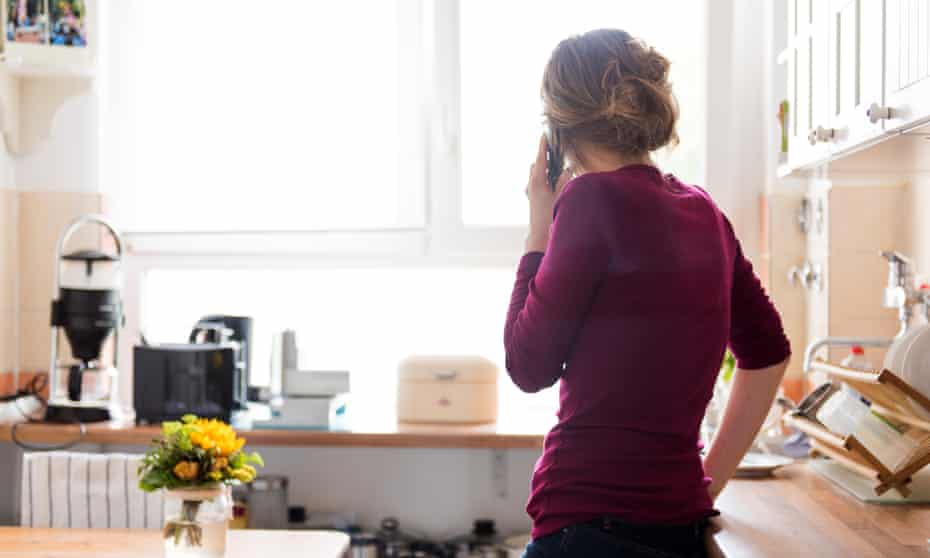While some have felt ‘lucky’ at their situation, others have ended up in debt or without the care they normally receive

Something about the sticky floors of the dingy nightclub Gemma Moore was at on the New South Wales central coast gave her the sense she was about to get sick.
“It was a good night, but I just really didn’t feel comfortable being out,” Moore said. “There weren’t any QR codes and the staff weren’t wearing masks. And I remember thinking: someone in here has Covid.”
A few days later, the 28-year-old care worker’s hunch proved correct when she, her boyfriend and her housemate all showed symptoms and tested positive to Covid.
“It took me ages to believe it was Covid,” Moore said. “I couldn’t wrap my head around it. I had had a negative rapid antigen test and it all had felt so far away.
“I also really didn’t want to have it, because that meant the people I saw in the last two days, my clients, were exposed and I was really worried about them.”
From the moment they received their PCR results, the three went into isolation, joining thousands of others across the country despite efforts by political leaders to open up the country ahead of Christmas.
“We can’t leave the house,” Moore says. “It feels like this invisible barrier – we’ve all been saying it. We can go to the end of the driveway and watch people from a distance as they walk or drive past, but we can’t go any further.
“It’s weird to feel normal, but also know that we’re infectious. It’s weird to think that just by me going out in the community I could share the love.”
Moore, however, says they are among the lucky ones.
With a stable housing situation, an ocean view and their other housemates visiting their families for the holidays, they have avoided a situation where they would have had to isolate from each other as well as the world.
Their mornings are spent apart, but they share meals and wait out the time in the afternoons.
Anna Mazzone had a different experience when she travelled to Adelaide from Berlin via Melbourne, and ended up spending almost three weeks in isolation over Christmas.
It was the 35-year-old’s first trip home in two years to visit her parents and she had initially quarantined with her brother in a small unit in Adelaide.
Over the course of the first week, the siblings couldn’t avoid each other in the “one big space”. Then, on the final day, Mazzone tested positive.
“Unfortunately, I must have caught it travelling. When I landed in Melbourne, I got a test that was negative and I was meant to do a final test, and that was positive,” Mazzone said.
While her brother, who was vaccinated, remained Covid-free, the unexpected result caused chaos.
The pair immediately tried to physically distance as best they could while they worked out what to do next. Though they were supposed to receive a call with instructions, none ever came. Mazzone said they spent the day calling health authorities for details but had a “different answer for every person we spoke to”.
Mazzone decided to take matters into her own hands by booking an Airbnb at a cost of $500 a day to isolate for 14 days, which has left her in debt.
“It feels like it’s the first wave in Adelaide, like no one’s experienced Covid before. Even coming in through Melbourne, it seems like no one knew what the right thing to do was.”
Others like Alex, who is chronically ill, began isolating as a pre-emptive measure when they saw case numbers start to climb, in a practice known as “shielding”.
The 30-year-old, who did not wish to be identified and who lives with myalgic encephalomyelitis, otherwise known as chronic fatigue syndrome, spends most of their day in bed and relies on the help of their carer. They have struggled to apply for the NDIS, and have had to privately fundraise to pay for care.
Alex, who is vaccinated, is not just worried about dying from Covid, but after-effects like long Covid that will make their circumstances worse.
Their isolation has taken on “another layer” as their carer and two friends who helped with groceries have been exposed, and are isolating while waiting for test results.
Until their results came, Alex said they would be on their own and having to triage basic tasks.
“Basically the level of care that I need is very high, so whenever I have to exert myself, like cleaning stuff, sanitising all the stuff coming in, it takes so much out of me,” Alex said.
“I just prioritise where I put my energy each day. So it’s like: OK, I’m meant to shower today, do I shower, do I make sure I’m having three meals?”
Alex said for all the talk about “living with Covid” and allowing it to spread, disabled people were being left to carry the cost – often without government support.
“It’s not just disabled people shielding, but the people who care for us, that we rely on,” they said. “There’s a shortage of people who are caring for us.
“A lot of people are going to wind up getting disabled from long Covid, and the system already doesn’t support chronically ill, disabled people enough.”
